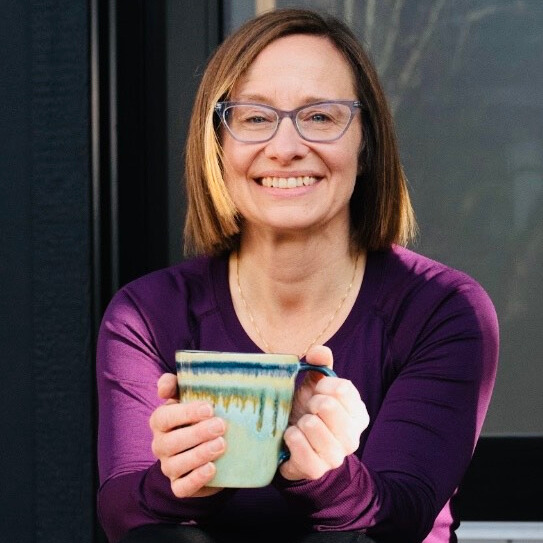
At Careerminds, our career coaches guide individuals through major transitions with compassion, expertise, and a personalized approach. One of those dedicated professionals is Jill Rehman, a Career Coach who brings a unique blend of business acumen and heartfelt connection to her work.
With a background in finance and regulatory compliance, Jill transitioned into coaching during the COVID-19 pandemic and has since helped countless participants to rediscover their strengths and land meaningful roles. In this interview, she reflects on her career path, coaching philosophy, and the transformative power of her work.
Let’s talk about your role
I have a Bachelor of Commerce degree in Finance and used to work in the financial industry, doing fixed income and equity research. Then I ended up working on the regulatory side, had kids, and just felt like something was missing from my career. I had a kind of career transition myself, going back to the table and asking myself, what makes me tick? What do I want to do? And at my core, I realized I really want to help people. So I explored new paths, and by the time the pandemic hit in 2020, I ended up in coaching. And I love it very much.
As I have a lot of corporate clients, I have a deep understanding of what it’s like to work full-time in a company. I get the stress, and I can relate to where people are coming from, because I’ve been there myself. That’s really useful.
Career coaching looks different for everybody because everyone is so unique. In my case, I like to follow the lead of my clients, asking myself, where do they need the most support and help? But there’s some kind of general structure that applies to every coach. Initially, it’s helping people with transitioning from the company they left to what comes next, and that takes time.
Some people have a clear vision of what they want to do next, and others really don’t. So we do career counseling, figuring out their strengths, interests, and values. I always say to people, “We’re going to go for Plan A before we go for Plan B.” People often think what they want is impossible, and I help them to see that it’s not.
I want people to feel empowered—that they can get what they want. I’m also a sounding board when they have questions, especially when it’s new territory. I help them to reflect on whether they’re making the right decision and what they even want
When I say I work in outplacement, some people sound empathetic, saying it must be hard. But actually I think it’s a privilege to support people when they need it most. I don’t think everyone even knows what a career coach is or what career transition support really is.
Let’s talk about working with Careerminds
What can individuals expect when they work with a Careerminds coach?
First of all, they should expect to be heard. We’re going to do our best to make sure they feel empowered and have all the right tools to succeed in whatever career they choose.
After that, we’ll get to the more practical work. We’re going to talk about resumes—they’re going to have an amazing resume that they’re going to love. And then they’ll have a clear idea of what they need to be doing in the next phase of their transition journeys.
How do you tailor your coaching approach to fit the diverse needs of Careerminds participants?
As I said before, I tell people, “I’m going to follow your lead. Whatever you need support with, I’m going to help you with that.” For example, some people are really good at interviews, and they don’t need a lot of practice – others do.
As a coach, I ask people what they need and what they want help with. I use my intuition to figure out where to focus. I have opinions, of course, and I always let participants know what I think about their resumes. But this is participant-centric. This is about them, not about me.
I like to set the stage for open communication so that we can tailor the process to them. It makes everything easier.
What value does a service like Careerminds bring to individuals and companies?
Having someone who’s been down that path before, who can support you when you feel lost—that’s a game changer for most people. A lot of people haven’t heard of using AI for resumes or job searches. So when someone steps in and says, “Hey, we’ve got this,” it changes everything.
Also, one-on-one coaching versus virtual coaching is so important because it keeps the whole process more human. If people just have the virtual or online option, they won’t have the opportunity to tell someone they’re worried or struggling. Feeling heard is extremely valuable in this situation.
Let’s talk about real-life moments
What’s your most memorable moment since working as a coach for Careerminds?
There was one client who really struggled with her confidence. She was suspicious of coaching and didn’t know how I could help. But we went through the process—we worked on her resume, discussed her strengths, and helped build her up.
She ended up landing her dream job. She sent me the loveliest thank-you card, saying how much this really changed her. And I actually ran into her a few months later, and she said, “This is the best job ever.” That makes me really happy.
Is there a client success story that continues to inspire you?
There was another participant who had worked in oil and gas his whole life in Calgary. He got a pretty good package, and instead of going back to corporate, he used it to start his own business.
We supported him through that process, and he launched a company offering support services for electric cars. Totally different industry, right? I love it when people say they want to go 180 degrees and pivot completely. I’m like, “Yeah, let’s go do this!”
Let’s talk about the outplacement landscape
How has the outplacement industry evolved in recent years?
AI has totally changed the landscape. It’s given people really easy, smart tools to tailor resumes, getting them started when they need to write outreach messages… it’s very, very helpful.
But I always tell people two things. First, read everything very thoroughly because AI will get things wrong or just make things up. I had a client whose AI-generated resume said she spoke German—in the end, she didn’t!
Secondly, I feel that whatever AI creates is boring. Those stories are not interesting to read. I tell people: use AI, but keep your authentic voice. Be human. That’s what connects you to people.
Let’s talk about advice
What’s one piece of advice you frequently give to individuals going through a career transition?
Some outplacement programs have time limits—sometimes one month, sometimes two—and senior roles can take longer to find. So, I ensure that, with the tools we provide to participants during the program, they have everything they need to be successful and feel confident in getting the jobs they want. After all, I can’t promise they’ll get a job, but I can always stress that they have what they need to get there.
What advice would you give to companies that are uncertain about partnering with an outplacement firm?
I understand some companies see outplacement as a cost. People are loyal, though. When you let them go, it can feel like a betrayal. Outplacement is one way for the organization to say they’re sorry for having to let people go, but they want to ensure everyone lands on their feet.
It shows the company still cares and helps with its reputation. Not to mention that if people feel like they’re in good hands, they’re less likely to take legal action. It makes sense to everyone.Want to learn more about how Careerminds supports career transitions? Speak with one of our experts today!
In need of outplacement assistance?
At Careerminds, we care about people first. That’s why we offer personalized talent management solutions for every level at lower costs, globally.




